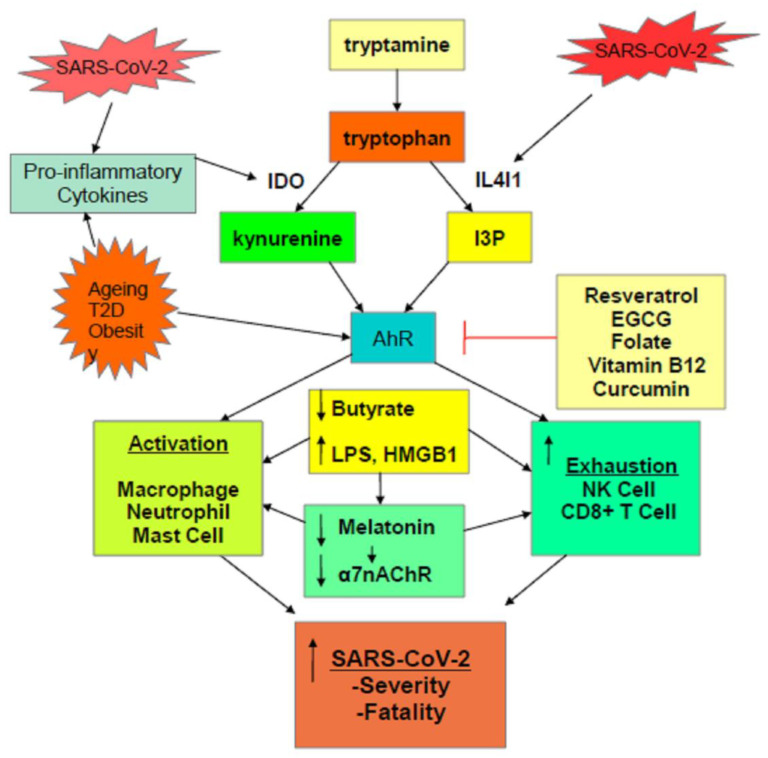Figure 1.
Scheme showing how the SARS-CoV-2 virus, and pre-existent high-risk medical conditions, shift tryptophan metabolism to increase AhR ligands. The activation of the AhR alters the nature of the initial ‘cytokine storm’ and suppresses the endogenous antiviral responses of NK cells and CD8+ T cells, leading to a prolonged activation of macrophages, neutrophils, and mast cells, as evident in severe SARS-CoV-2 infection. The driving to tryptophan to kynurenine and I3P, along with the elevated pro-inflammatory cytokines of the ‘cytokine storm’, also suppresses pineal melatonin production and therefore the induction of the α7nAChR by melatonin, thereby contributing lost vagal dampening of immune activity and raising sympathetic nervous system activation. The elevation in pro-inflammatory cytokines also increases gut dysbiosis/permeability, leading to a decrease in butyrate and raising LPS levels, further contributing to metabolic dysregulation of patterned immune responses to SARS-CoV-2 infection. A number of readily available nutraceuticals, such as resveratrol, EGCG, folate, vitamin B12, and curcumin, by AhR inhibition, may act to modulate how many processes influence SARS-CoV-2 pathophysiology.

